NIL
NiJaree Canady, Texas Tech softball ride ‘selfless’ attitude to WCWS finals
Why Texas Tech, Texas will win 2025 WCWS It’s a Lone Star State Women’s College World Series this year, and reporter Jenni Carlson breaks down one reason Texas Tech will win and one reason Texas will win the WCWS. OKLAHOMA CITY — It took NiJaree Canady until the Women’s College World Series finals to admit […]

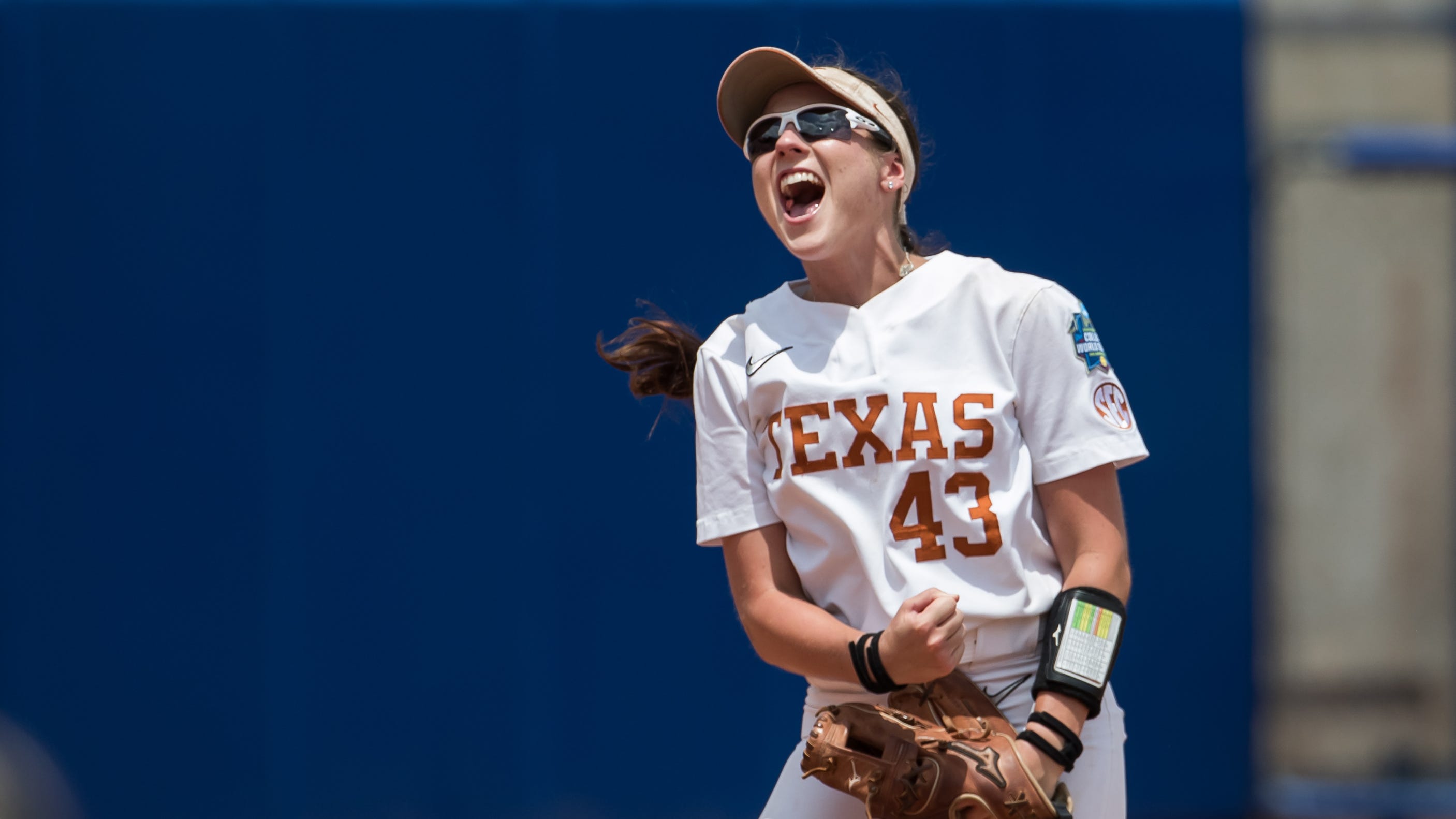
Why Texas Tech, Texas will win 2025 WCWS
It’s a Lone Star State Women’s College World Series this year, and reporter Jenni Carlson breaks down one reason Texas Tech will win and one reason Texas will win the WCWS.
OKLAHOMA CITY — It took NiJaree Canady until the Women’s College World Series finals to admit this season has been hard.
Not only has the best pitcher in the country been put under the microscope for her name, image and likeness deal with the Matador Club to join the Texas Tech softball team, Canady also spent the bulk of the 2025 season with an injury everybody knew she had, though the extent of which was hidden until recently.
On Monday, before playing Oklahoma in the semifinals, Gerry Glasco revealed to a radio show that Canady spent much of the year playing with a torn hamstring. The injury occurred in the Feb. 26 game at North Texas, where Canady, playing first base for the first time, stretched out to get the out. She came out of that game in Denton, and Texas Tech wound up losing 6-5 on a walk-off home run.
“I just know it was a really serious injury,” Glasco said Tuesday, “that was going to take eight or nine weeks to get over completely.”
Canady was back in the circle three days later, leading the Red Raiders to a 7-2 win over then-No. 5 Texas A&M. The injury, Glasco said, would have shut Canady down until she recovered had it been in her right leg. Since it was in her left, Canady was able to continue pitching but had to make concessions elsewhere.
Midweek bullpen sessions were eliminated, as was hitting, something that played a major factor in Canady’s decision to transfer from Stanford to Texas Tech. For about a month, Canady pitched in games, and that was about it.
“Honestly,” Canady said, “I think the results said it was worse than it was.”
Canady said the injury is a bit overblown, and she spent the better part of two months pitching through it. The million-dollar arm continued to excel in the circle, battling through obvious pain and discomfort. She never said anything about it.
During the time Canady was pitching on a torn hamstring, she totaled 114⅔ innings with a 0.98 ERA across 19 pitching appearances. That ERA, even with the injury, would rank as the best in the country.
“We didn’t talk a lot about it, but it was a significant setback,” Glasco said, “… and then to still have the results that she did, to show what a tremendous competitor and what a tremendous talent she was.”
After earning the game-winning sacrifice fly against Oklahoma, Lauren Allred said the team chose a word to live by this season. That was was selfless, and it exemplifies Canady pitching through the pain and not telling anybody about it.
“NiJa’s a tough competitor,” Texas Tech pitching coach Tara Archibald said, “a team-focused individual. I’ve never met a player with as much talent as NiJa has, who thinks about the team more than anything in the world, and it just says who she is.
“She didn’t have to battle through that. She didn’t have to play through that. But this was NiJa’s goal. NiJa wanted to win a national championship, and she knew if we lost those games in the middle of the year, we wouldn’t have a chance to do it and she was determined to put is in a spot to be able to do it, but that’s just who she is as a person and says a whole lot about her.”
Getting to the Women’s College World Series finals wasn’t an easy trek. Not only were the Red Raiders figuring themselves out, they were doing it with a hobbled workhorse. The only way it was going to work was with everybody doing their part, something Texas Tech’s roster has done throughout the postseason run.
“I think we’ve been playing selfless and playing for each other,” Allred said, “and that’s helped us get through all the tough games.”
Much has been made about what Canady has brought to Texas Tech, the softball team and the athletic department as a whole. Glasco said when the Red Raiders signed her, he was told nearly 1 million stories were generated around her NIL deal. But her value, the coach said, is incalculable.
“I think,” Glasco said, “when you look at how she endured injury, she endured a young team around her, or a new team around her and with a new coaching staff and went through with a new pitching coach, and then she’s got a new hitting coaching working with her on hitting, just total adjustments, but throughout all that, no matter what, she was just rock solid in the circle for us and provided us with that solid stone cold assassin out there in the circle that allowed us to grow and become a really good softball team at the end of the year.
“I think it even surprised us.”
Glasco likened Canady to Superman for her ability to compartmentalize everything around her and power on. Even Superman has a weakness, and while Canady will never complain about her circumstances — if she’ll tell anybody about them at all — getting to this point has been anything but a breeze.
“Honestly,” Canady said, “this year, it’s been hard, just for me personally. I’ll say this, too, I feel like we had a lot of road bumps, and this was not an easy ride.
“We actually were joking about it on the bus, if you would have asked us earlier in the year, earlier in the preseason if we would be two games away from hoisting a National Championship trophy, we would probably laugh. We took some hard losses early on.
“Honestly, just feel like we’ve just grown as a team. Part of the road getting here is peaking at the right time. I feel like we’re finally just catching our step, and we’re getting to know each other on the field, and I feel like we’re just playing for each other right now.”
2025 Women’s College World Series Championship
Best-of-three series at Devon Park, Oklahoma City
Wednesday, June 4
- WCWS finals Game 1: Texas Tech vs. Texas, 7 p.m., ESPN
Thursday, June 5
- WCWS finals Game 2: Texas Tech vs. Texas, 7 p.m., ESPN
Friday, June 6 (if necessary)
WCWS finals Game 3: Texas Tech vs. Texas, 7 p.m., ESPN
NIL
The new college sports agency is rejecting some athlete NIL deals with donor-backed collectives
FILE — Camp Randall Stadium is seen during an NCAA college football game between Wisconsin and Miami of Ohio, Sept. 12, 2015, in Madison, Wis. (AP Photo/Aaron Gash, File) AP The new agency in charge of regulating name, image, likeness deals in college sports sent a letter to schools Thursday saying it had rejected deals […]
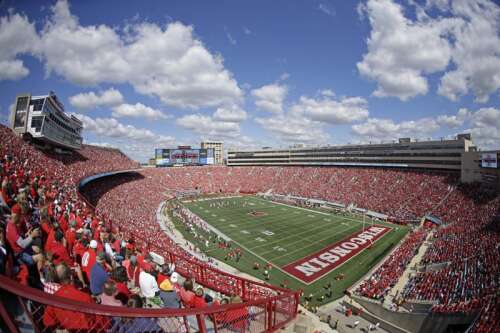
FILE — Camp Randall Stadium is seen during an NCAA college football game between Wisconsin and Miami of Ohio, Sept. 12, 2015, in Madison, Wis. (AP Photo/Aaron Gash, File)
AP
The new agency in charge of regulating name, image, likeness deals in college sports sent a letter to schools Thursday saying it had rejected deals between players and donor-backed collectives formed over the past several years to funnel money to athletes or their schools.
Those arrangements hold no “valid business purpose,” the memo said, and don’t adhere to rules that call for outside NIL deals to be between players and companies that provide goods or services to the general public for profit.
The letter to Division I athletic directors could be the next step in shuttering today’s version of the collective, groups that are closely affiliated with schools and that, in the early days of NIL after July 2021, proved the most efficient way for schools to indirectly cut deals with players.
Since then, the landscape has changed yet again with the $2.8 billion House settlement that allows schools to pay the players directly as of July 1.
Already, collectives affiliated with Colorado, Alabama, Notre Dame, Georgia and others have announced they’re shutting down. Georgia, Ohio State and Illinois are among those that have announced plans with Learfield, a media and technology company with decades of licensing and other experience across college athletics, to help arrange NIL deals.
Outside deals between athlete and sponsor are still permitted, but any worth $600 or more have to be vetted by a clearinghouse called NIL Go that was established by the new College Sports Commission and is being run by the auditing group Deloitte.
In its letter to the ADs, the CSC said more than 1,500 deals have been cleared since NIL Go launched on June 11, “ranging in value from three figures to seven figures.” More than 12,000 athletes and 1,100 institutional users have registered to use the system.
But the bulk of the letter explained that many deals could not be cleared because they did not conform to an NCAA rule that sets a “valid business purpose” standard for deals to be approved.
The letter explained that if a collective reaches a deal with an athlete to appear on behalf of the collective, which charges an admission fee, the standard is not met because the purpose of the event is to raise money to pay athletes, not to provide goods or services available to the general public for profit.
The same would apply to a deal an athlete makes to sell merchandise to raise money to pay that player because the purpose of “selling merchandise is to raise money to pay that student-athlete and potentially other student-athletes at a particular school or schools, which is not a valid business purpose” according to the NCAA rule.
Sports attorney Darren Heitner, who deals in NIL, said the guidance “could disproportionately burden collectives that are already committed to spending money on players for multiple years to come.”
“If a pattern of rejections results from collective deals submitted to Deloitte, it may invite legal scrutiny under antitrust principles,” he said.
On a separate track, some college sports leaders, including the NCAA, are seeking a limited form of antitrust protection from Congress.
The letter said a NIL deal could be approved if, for instance, the businesses paying the players had a broader purpose than simply acting as a collective. The letter uses a golf course or apparel company as examples.
“In other words, NIL collectives may act as marketing agencies that match student-athletes with businesses that have a valid business purpose and seek to use the student’s NIL to promote their businesses,” the letter said.
NIL
The new college sports agency is rejecting some athlete NIL deals with donor-backed collectives
The new agency in charge of regulating name, image, likeness deals in college sports sent a letter to schools Thursday saying it had rejected deals between players and donor-backed collectives formed over the past several years to funnel money to athletes or their schools. Those arrangements hold no “valid business purpose,” the memo said, and […]

The new agency in charge of regulating name, image, likeness deals in college sports sent a letter to schools Thursday saying it had rejected deals between players and donor-backed collectives formed over the past several years to funnel money to athletes or their schools.
Those arrangements hold no “valid business purpose,” the memo said, and don’t adhere to rules that call for outside NIL deals to be between players and companies that provide goods or services to the general public for profit.
Advertisement
The letter to Division I athletic directors could be the next step in shuttering today’s version of the collective, groups that are closely affiliated with schools and that, in the early days of NIL after July 2021, proved the most efficient way for schools to indirectly cut deals with players.
Since then, the landscape has changed yet again with the $2.8 billion House settlement that allows schools to pay the players directly as of July 1.
Already, collectives affiliated with Colorado, Alabama, Notre Dame, Georgia and others have announced they’re shutting down. Georgia, Ohio State and Illinois are among those that have announced plans with Learfield, a media and technology company with decades of licensing and other experience across college athletics, to help arrange NIL deals.
Outside deals between athlete and sponsor are still permitted, but any worth $600 or more have to be vetted by a clearinghouse called NIL Go that was established by the new College Sports Commission and is being run by the auditing group Deloitte.
Advertisement
In its letter to the ADs, the CSC said more than 1,500 deals have been cleared since NIL Go launched on June 11, “ranging in value from three figures to seven figures.” More than 12,000 athletes and 1,100 institutional users have registered to use the system.
But the bulk of the letter explained that many deals could not be cleared because they did not conform to an NCAA rule that sets a “valid business purpose” standard for deals to be approved.
The letter explained that if a collective reaches a deal with an athlete to appear on behalf of the collective, which charges an admission fee, the standard is not met because the purpose of the event is to raise money to pay athletes, not to provide goods or services available to the general public for profit.
The same would apply to a deal an athlete makes to sell merchandise to raise money to pay that player because the purpose of “selling merchandise is to raise money to pay that student-athlete and potentially other student-athletes at a particular school or schools, which is not a valid business purpose” according to the NCAA rule.
Advertisement
Sports attorney Darren Heitner, who deals in NIL, said the guidance “could disproportionately burden collectives that are already committed to spending money on players for multiple years to come.”
“If a pattern of rejections results from collective deals submitted to Deloitte, it may invite legal scrutiny under antitrust principles,” he said.
On a separate track, some college sports leaders, including the NCAA, are seeking a limited form of antitrust protection from Congress.
The letter said a NIL deal could be approved if, for instance, the businesses paying the players had a broader purpose than simply acting as a collective. The letter uses a golf course or apparel company as examples.
Advertisement
“In other words, NIL collectives may act as marketing agencies that match student-athletes with businesses that have a valid business purpose and seek to use the student’s NIL to promote their businesses,” the letter said.
___
AP college sports: https://apnews.com/hub/college-sports
NIL
NCAA Under Fire After Deion Sanders Advocates for NIL Cap in College Football
NCAA Under Fire After Deion Sanders Advocates for NIL Cap in College Football originally appeared on Athlon Sports. The NCAA received some criticism after Colorado Buffaloes coach Deion Sanders proposed a solution to one of college football’s rising concerns. Advertisement Coach Prime said he wants to create an NIL salary cap similar to the system […]
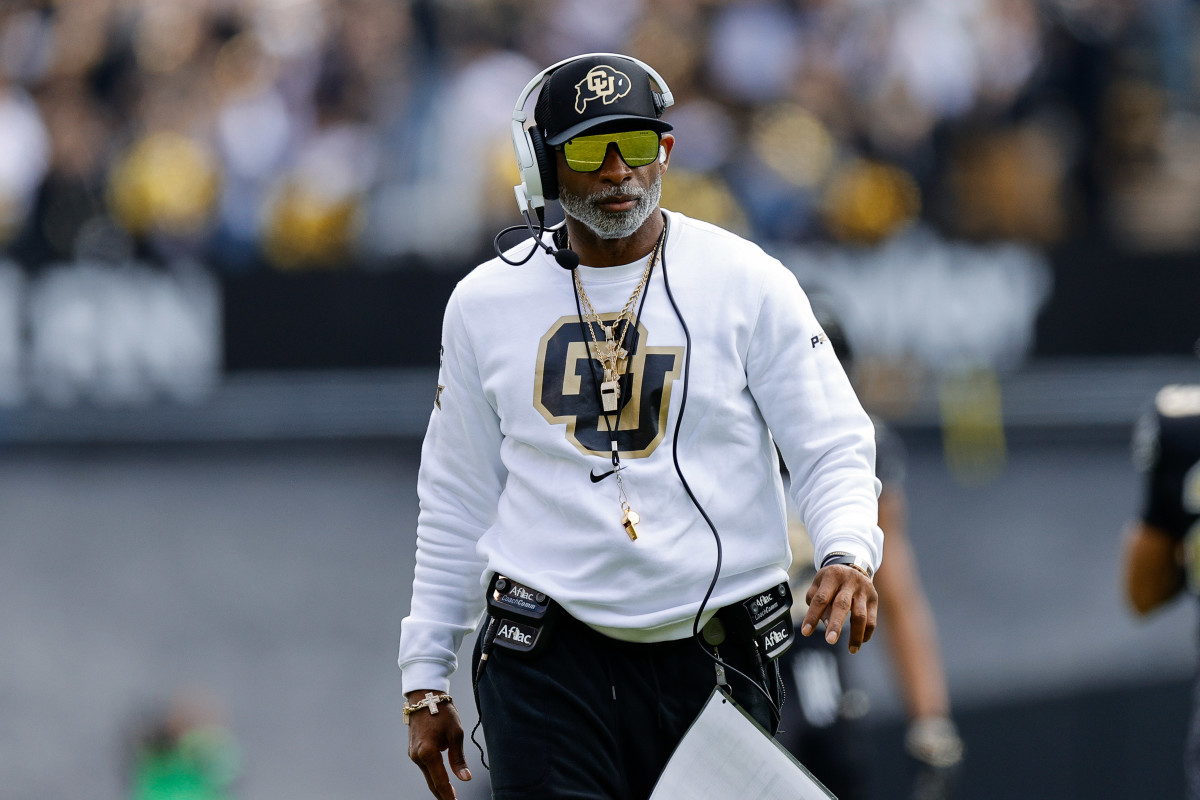
NCAA Under Fire After Deion Sanders Advocates for NIL Cap in College Football originally appeared on Athlon Sports.
The NCAA received some criticism after Colorado Buffaloes coach Deion Sanders proposed a solution to one of college football’s rising concerns.
Advertisement
Coach Prime said he wants to create an NIL salary cap similar to the system used in the NFL to create equal spending opportunities. Sanders came up with this idea after witnessing numerous SEC and Big 10 schools spend millions to recruit incoming freshmen.
“So the problem is, you got a guy that’s not that darn good, but he could go to another school and they give him a half million dollars,” Sanders said during the Big 12 media days on Wednesday. “You can’t compete with that. And it don’t make sense.”

Colorado Buffaloes head coach Deion Sanders reacts against the Arizona State Sun DevilsMark J. Rebilas-Imagn Images
The Alabama Crimson Tide raised its spending by 82% in 2024. Due to these schools having high amounts or spending Sanders thinks this has created a disparity because programs like Colorado don’t receive as much funding as the Crimson Tide, making it harder for them to attract recruits.
Advertisement
“You understand darn near why they’re in the playoffs,” Sanders added. “It’s kind of hard to compete with somebody who’s giving $25-30 million to a freshman class. It’s crazy.”
Furthermore, due to the House v NCAA settlement, schools can pay their athletes through a revenue-sharing pool, capped at $20.5 million. However, that amount could rise to $30 million by 2035 as schools begin putting more money into their NIL funds.
According to NFL reporter Albert Breer, some see this outcome as a failure on the NCAA’s end because they could have organized a system to properly send out NIL funding.
“I think there was an opportunity over the last 20 years for the NCAA [and] the conferences to get a hold of this early and create some sort of order, rules and guard rails,” Breer said during a recent episode of “The Herd with Colin Cowherd.”
Advertisement
“And unfortunately, there wasn’t the leadership at the NCAA level with guys like Mark Emmert to do that. Those guys were more concerned with collecting every check until the money train stopped rolling, so now everybody else was left to pick up the pieces. And I think it’s sort of unpredictable which way that will all go.”
Related: Deion Sanders Delivers Verdict on Deion Sanders Jr.’s Recent Nike Collaboration
This story was originally reported by Athlon Sports on Jul 11, 2025, where it first appeared.
NIL
The new college sports agency is rejecting some athlete NIL deals with donor-backed collectives – Twin Cities
The new agency in charge of regulating name, image, likeness deals in college sports sent a letter to schools Thursday saying it had rejected deals between players and donor-backed collectives formed over the past several years to funnel money to athletes or their schools. Those arrangements hold no “valid business purpose,” the memo said, and […]
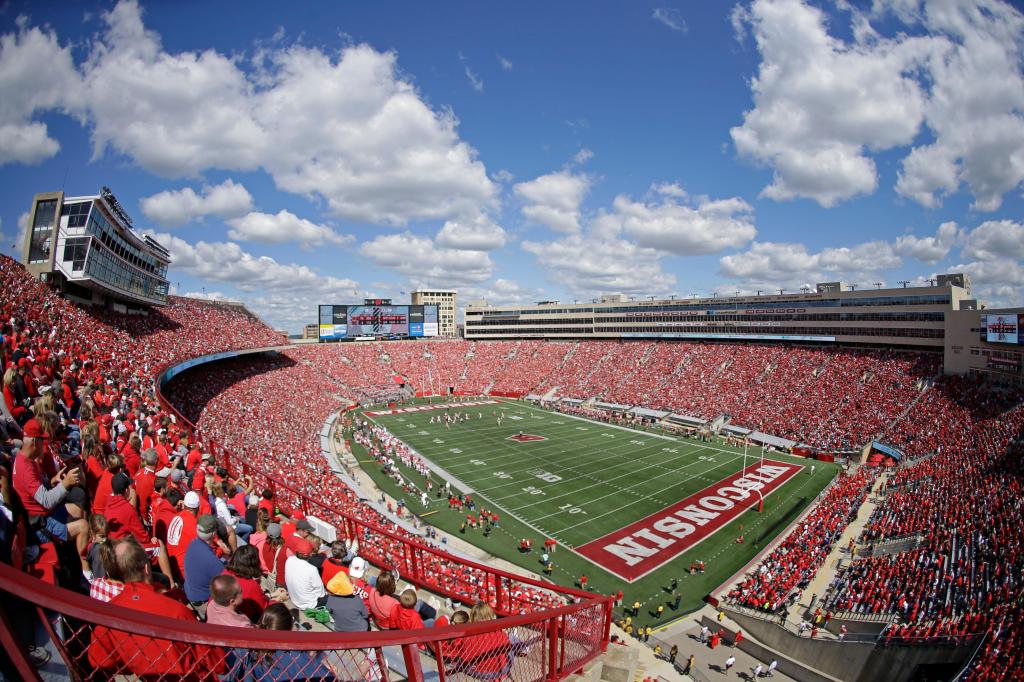
The new agency in charge of regulating name, image, likeness deals in college sports sent a letter to schools Thursday saying it had rejected deals between players and donor-backed collectives formed over the past several years to funnel money to athletes or their schools.
Those arrangements hold no “valid business purpose,” the memo said, and don’t adhere to rules that call for outside NIL deals to be between players and companies that provide goods or services to the general public for profit.
The letter to Division I athletic directors could be the next step in shuttering today’s version of the collective, groups that are closely affiliated with schools and that, in the early days of NIL after July 2021, proved the most efficient way for schools to indirectly cut deals with players.
Since then, the landscape has changed yet again with the $2.8 billion House settlement that allows schools to pay the players directly as of July 1.
Already, collectives affiliated with Colorado, Alabama, Notre Dame, Georgia and others have announced they’re shutting down. Georgia, Ohio State and Illinois are among those that have announced plans with Learfield, a media and technology company with decades of licensing and other experience across college athletics, to help arrange NIL deals.
Outside deals between athlete and sponsor are still permitted, but any worth $600 or more have to be vetted by a clearinghouse called NIL Go that was established by the new College Sports Commission and is being run by the auditing group Deloitte.
In its letter to the ADs, the CSC said more than 1,500 deals have been cleared since NIL Go launched on June 11, “ranging in value from three figures to seven figures.” More than 12,000 athletes and 1,100 institutional users have registered to use the system.
But the bulk of the letter explained that many deals could not be cleared because they did not conform to an NCAA rule that sets a “valid business purpose” standard for deals to be approved.
The letter explained that if a collective reaches a deal with an athlete to appear on behalf of the collective, which charges an admission fee, the standard is not met because the purpose of the event is to raise money to pay athletes, not to provide goods or services available to the general public for profit.
The same would apply to a deal an athlete makes to sell merchandise to raise money to pay that player because the purpose of “selling merchandise is to raise money to pay that student-athlete and potentially other student-athletes at a particular school or schools, which is not a valid business purpose” according to the NCAA rule.
Sports attorney Darren Heitner, who deals in NIL, said the guidance “could disproportionately burden collectives that are already committed to spending money on players for multiple years to come.”
“If a pattern of rejections results from collective deals submitted to Deloitte, it may invite legal scrutiny under antitrust principles,” he said.
On a separate track, some college sports leaders, including the NCAA, are seeking a limited form of antitrust protection from Congress.
The letter said a NIL deal could be approved if, for instance, the businesses paying the players had a broader purpose than simply acting as a collective. The letter uses a golf course or apparel company as examples.
“In other words, NIL collectives may act as marketing agencies that match student-athletes with businesses that have a valid business purpose and seek to use the student’s NIL to promote their businesses,” the letter said.
Originally Published:
NIL
Florida Gators donor Gary Condron wants to see ‘guardrails’ for NIL
USA TODAY Sports spoke with more than 10 boosters at high profile power conference schools about NIL, and only two talked on the record. One of them was University of Florida booster Gary Condron, the largest single financial donor in the history of Gator Boosters, Inc. USA TODAY Sports also interviewed and profiled Texas Tech […]

USA TODAY Sports spoke with more than 10 boosters at high profile power conference schools about NIL, and only two talked on the record. One of them was University of Florida booster Gary Condron, the largest single financial donor in the history of Gator Boosters, Inc.
USA TODAY Sports also interviewed and profiled Texas Tech billionaire booster Cody Campbell, who is working to reform the NIL space and “save college sports”, writes Matt Hayes. Hayes spoke to Condron about the current state of name, image and likeness.
“NIL space for boosters is like throwing money into a deep, dark hole with little to no return on the investment,” Condron said. “Nobody likes this. Not athletic directors, not coaches, not boosters. The only ones who like it are the players, and the attorneys and agents.”
Condron, 67, was a walk-on baseball player at Florida in the mid-1970s and graduated from UF in 1977 with a degree in building construction. He’s the CEO and founder of The Conlan Company, one of the leading builders for Amazon’s distribution centers around the country.
In addition to his support for Gator Boosters, Inc., Condron has helped fund the rosters for football, men’s basketball, baseball and other UF sports. He recently donated $1 million to Todd Golden’s program after his team won the 2025 national championship and the SEC Tournament.
“Gary’s been incredibly impactful on our success. I’m pretty sure, for football, baseball. He’s done a lot for all these different programs. Gary deserves a ton of credit for the success, because players are incredibly important,” Golden said of Condron after the title celebration at halftime of the spring football game.
“Gary gave us a great gift – and the reality of it is we need a lot more. We need a lot more to retain our players.”
Golden, who also thanked several other donors for their contributions, was able to retain his top frontcourt players and also signed one of the nation’s best transfer classes with three top-100 signees, adding a total of five players to the backcourt with a pair of top-50 recruits.
Condron’s efforts also helped Florida football coach Billy Napier close strong in the 2025 recruiting cycle and UF baseball coach Kevin O’Sullivan reload with his 2025 class, which currently consists of nine transfers and 12 recruits, including Jaden Bastian, Aaron Watson and Jordan Yost.
During his interview with USA TODAY Sports, Condron recalled working multiple jobs to pay his way through college. That process, Condron told Hayes, gets lost in today’s landscape with players getting paid and walk-on spots being eliminated. He would like to see some NIL reform happen.
“I came from a family that didn’t have two nickels to rub together,” Condron said. “If I had an opportunity to eat at the training table (at Florida) it was a blessing for me. If you saw what kids get today, the hair on your neck would stand up. I don’t know how much longer I can (fund NIL) unless we get some guardrails.”
NIL
New college sports agency is rejecting some NIL deals with donor
The new agency in charge of regulating name, image, likeness deals in college sports sent a letter to schools Thursday saying it had rejected deals between players and donor-backed collectives formed over the past several years to funnel money to athletes or their schools. Those arrangements hold no “valid business purpose,” the memo said, and […]


The new agency in charge of regulating name, image, likeness deals in college sports sent a letter to schools Thursday saying it had rejected deals between players and donor-backed collectives formed over the past several years to funnel money to athletes or their schools.
Those arrangements hold no “valid business purpose,” the memo said, and don’t adhere to rules that call for outside NIL deals to be between players and companies that provide goods or services to the general public for profit.
The letter to Division I athletic directors could be the next step in shuttering today’s version of collectives, groups that are closely affiliated with schools and that, in the early days of NIL after July 2021, proved the most efficient way for schools to indirectly cut deals with players.
Since then, the landscape has changed yet again with the $2.8 billion House settlement that allows schools to pay the players directly as of July 1.

Already, collectives affiliated with Colorado, Alabama, Notre Dame, Georgia and others have announced they’re shutting down. Georgia, Ohio State and Illinois are among those that have announced plans with Learfield, a media and technology company with decades of licensing and other experience across college athletics, to help arrange NIL deals.
Outside deals between athlete and sponsor are still permitted, but any worth $600 or more have to be vetted by a clearinghouse called “NIL Go” that was established by the new College Sports Commission and is being run by the auditing group Deloitte.
In its letter to the ADs, the CSC said more than 1,500 deals have been cleared since NIL Go launched on June 11, “ranging in value from three figures to seven figures.” More than 12,000 athletes and 1,100 institutional users have registered to use the system.
But the bulk of the letter explained that many deals could not be cleared because they did not conform to an NCAA rule that sets a “valid business purpose” standard for deals to be approved.
The letter explained that if a collective reaches a deal with an athlete to appear on behalf of the collective, which charges an admission fee, the standard is not met because the purpose of the event is to raise money to pay athletes, not to provide goods or services available to the general public for profit.
The same would apply to a deal an athlete makes to sell merchandise to raise money to pay that player because the purpose of “selling merchandise is to raise money to pay that student-athlete and potentially other student-athletes at a particular school or schools, which is not a valid business purpose” according to the NCAA rule.
Sports attorney Darren Heitner, who deals in NIL, said the guidance “could disproportionately burden collectives that are already committed to spending money on players for multiple years to come.”
“If a pattern of rejections results from collective deals submitted to Deloitte, it may invite legal scrutiny under antitrust principles,” he said.
On a separate track, some college sports leaders, including the NCAA, are seeking a limited form of antitrust protection from Congress.
The letter said a NIL deal could be approved if, for instance, the businesses paying the players had a broader purpose than simply acting as a collective. The letter uses a golf course or apparel company as examples.
“In other words, NIL collectives may act as marketing agencies that match student-athletes with businesses that have a valid business purpose and seek to use the student’s NIL to promote their businesses,” the letter said.
-

 Technology2 weeks ago
Technology2 weeks agoPet fitness and wellness trends for a healthier and happier dog
-

 College Sports2 weeks ago
College Sports2 weeks agoWAC to Rebrand to UAC, Add Five New Members in 2026
-

 Motorsports2 weeks ago
Motorsports2 weeks agoWhy Cosmetics are Making Up for Lost Time in Women’s Sports
-
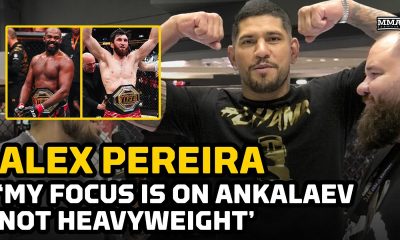
 Professional Sports3 weeks ago
Professional Sports3 weeks agoAlex Pereira responds to rumors of UFC heavyweight title fight with threatening message
-

 College Sports3 weeks ago
College Sports3 weeks agoAlabama Basketball
-

 Professional Sports3 weeks ago
Professional Sports3 weeks agoFrancis Ngannou sends Dana White a message following Jon Jones' shock UFC retirement
-

 College Sports2 weeks ago
College Sports2 weeks agoA new era of Dickinson hockey begins behind the bench – The Dickinson Press
-
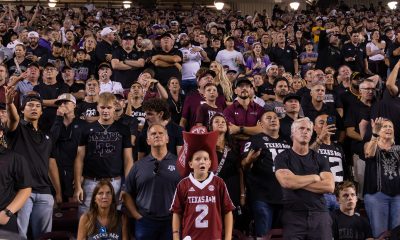
 Sports3 weeks ago
Sports3 weeks agoSEC Conference imposing a fine will create the opposite effect.
-

 Motorsports2 weeks ago
Motorsports2 weeks agoNASCAR This Week – Patriot Publishing LLC
-

 Health2 weeks ago
Health2 weeks agoFlorida assault survivor shares hope for change with new mental health law








 (via @jcschools_/IG)
(via @jcschools_/IG)




















